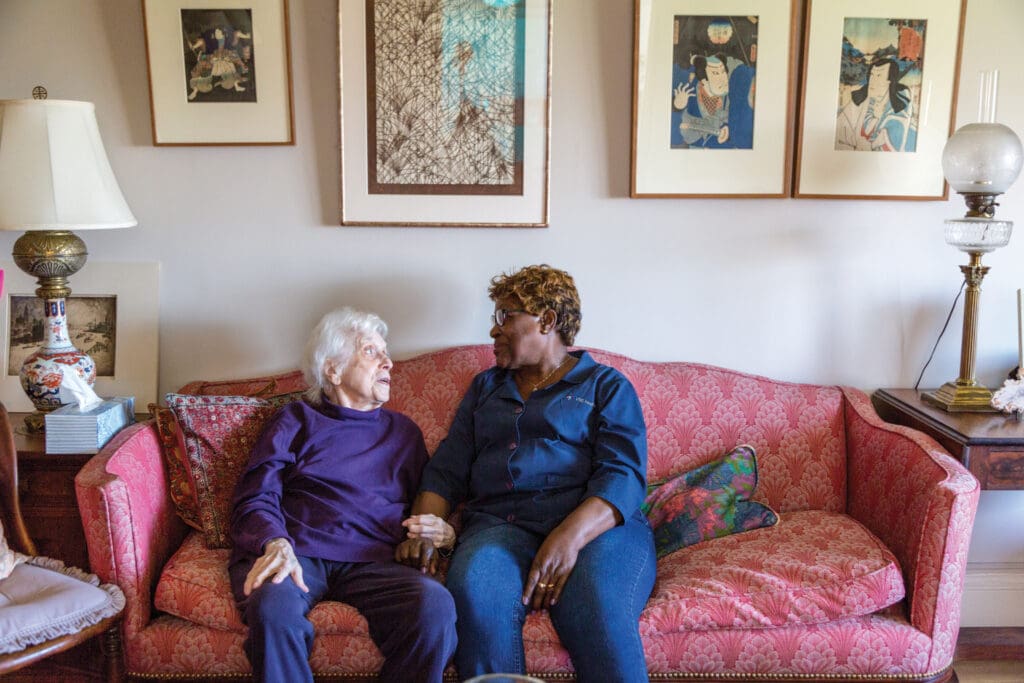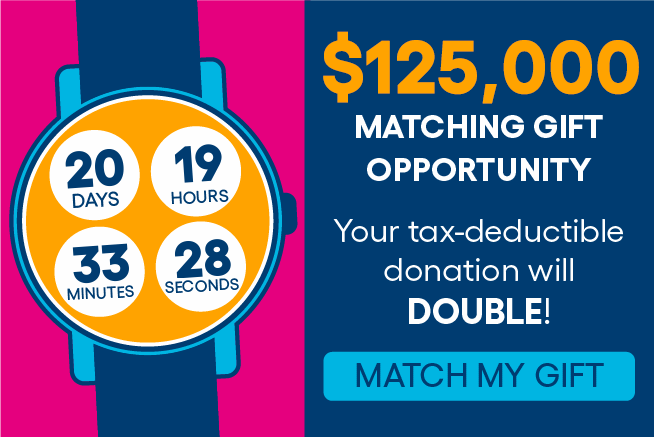
When you think about hospice care, you may think about the physical elements, like making sure someone is comfortable, managing medications, or treating bedsores.
Health isn’t just about your body — and care isn’t just about the medical services you receive. VNS Health cares for the whole person — and that includes the mental, emotional, and spiritual aspects as well.
Hospice care seeks to ensure that people also experience this comfort at the end of their life, and that care extends to their loved ones as well.
What Are Emotional Support & Spiritual Care?
Oftentimes, when someone is nearing the end of their life, we focus on how they are feeling physically. But how they’re feeling emotionally and spiritually is important too. Emotional support refers to the elements of care related to the emotions, thoughts, and feelings surrounding the end of a person’s life. VNS Health can offer emotional support in many ways, depending on you, your loved one, and your family’s needs.
Spiritual care seeks to address a person’s religious or spiritual needs at the end of their life. This means caring for your loved one’s body, mind, and spirit — whatever that means to them.
VNS Health hospice care teams include both social workers and spiritual care counselors who are clinically trained to provide the emotional support and spiritual care that people (and their loved ones) need as they near the end of life.
Social Workers
VNS Health hospice care teams include a social worker who can help you cope with the present and prepare for the future. They can support and guide you and your loved one in making decisions. Your social worker is also available to help with practical matters and paperwork. For example, they can answer questions as you fill out insurance forms and draw up advance directives.
Spiritual Care Counselors
Spiritual care counselors are available to hospice patients and families of all values, beliefs, and heritages. A VNS Health spiritual care counselor will listen to your loved one without judging and will assist them in their search for meaning and hope. The counselor can also arrange a ritual that honors your personal or spiritual beliefs or your religious or cultural heritage.
My mom was tenderly cared for by VNS Health hospice nurses over her last few days. Since then, I have been comforted by the memories. Sometimes, I’ve even thought they were angels, especially since the first nurse came to the door at 2 am on a Sunday morning. As a nurse myself, I am so proud of you all — and as a daughter, I am forever grateful.
Naomi, hospice caregiver (and nurse) from Queens
Emotional Support & Spiritual Care FAQs
If your loved one has a terminal illness or is facing the last months of their life, emotional support and spiritual care can help them cope and process their feelings. But this won’t benefit just your loved one — the VNS Health team is here for you as a caregiver, and for your family as well.
It can be emotionally and physically challenging when a loved one transitions to hospice care, but everyone can benefit from a little extra support and kindness.
Anyone can benefit from emotional support and spiritual care — whether they are religious or not. There are many different kinds of spirituality, and VNS Health will tailor our services to your family’s needs and wants.
Our spiritual care counselors and emotional support social workers will listen to your thoughts and worries and will help you and your loved ones get the most out of their presence and expertise.
If your loved one is living with a terminal illness, they are facing unknowns that might make them anxious or afraid. We don’t often talk about the end of life — or about end-of-life care — and this can add to their feelings of worry.
But the end of a person’s life doesn’t have to feel only scary or negative. These feelings are valid, but the end of life can also be a time when loved ones come together. It can be a time of honoring and celebrating your loved one and their life. It can be a time of comfort, caring, and peace.
With emotional support and spiritual care from VNS Health, you and your family can navigate these different feelings together while also being there for your loved one and each other.
Emotional support and spiritual care can help your loved one:
- Find words for what they are facing and feeling
- Connect with clergy or a faith community, as needed
- Handle complicated feelings about their life, their choices, or regrets they may have
- Take care of any unfinished business, finding peace with themself or others
- Provide guidance in having meaningful talks with loved ones
- Feel assured that their family will be supported and their legacy remembered
- Find peace about their choices and their passing
As a caregiver, you might be so focused on caring for your loved one that you don’t take the time to care for yourself. In trying to support your loved one, you may feel like you don’t have the time to process your own feelings. You may be so focused on being positive for your loved one that you don’t give yourself space for your own emotions.
It’s okay to have your own feelings — and to take the time to experience them. We’re here to take some of the weight off of your shoulders when it comes to managing your emotions, your loved one’s care, and your family.
Your social worker or spiritual care counselor can:
- Listen and help you cope with grief and other difficult feelings
- Arrange for respite care so that you can take some time for yourself
- Assist you and your loved one with writing advance care directives
- Coordinate support from other organizations (for things like meal prep or housekeeping)
- Provide guidance in making decisions about care, including resolving disagreements among family members
- Help you have important conversations with your loved one or other family members
- Assist you with planning a funeral or memorial service (a spiritual care counselor can officiate the service if needed)
Nothing can fully prepare you for the emotions you may feel when a loved one dies. You may feel confusion, longing, anxiety, anger, sorrow, and even physical pain.
Learning to live without your loved one in your life takes time. For this reason, VNS Health offers grief support for 13 months following the loss of a loved one in hospice care. Even if you don’t want to participate in our program right away, you are welcome to contact VNS Health at any time during that 13-month period.
VNS Health offers a wide variety of grief support groups that address the challenges of coping with your loss. Some groups are specific to certain relationships. Our programs include grief support for those who have lost a parent, a spouse or partner, a sibling, or an adult child. Bereavement counselors can help small children understand a beloved grandparent’s death.
We have groups specifically for men, and we offer groups in Spanish and Chinese. We also offer workshops on many different topics, such as relieving stress or getting through the holidays for the first time without your loved one.
Not all grief is the same, and grieving is a process. VNS Health is here for you and your family, whatever your needs may be.
Emotional Support and Spiritual Care That Honor Your Whole Identity
At VNS Health, we believe that everyone should have access to end-of-life care that recognizes, respects, and celebrates all the aspects of their lives. That’s why our teams are made up of individuals who come from all walks of life and have the training and personal experience to support and connect with your loved one.
Religious and Cultural End-of-Life Support
Spiritual care counselors are available to hospice patients and families of all values, beliefs, and heritages. They can connect with your family and your loved one through your own faith tradition, language, and culture. They can also arrange a ritual that honors your personal or spiritual beliefs or your religious or cultural heritage.
VNS Health also works with the The National Institute for Jewish Hospice and the Chinese American Coalition for Compassionate Care.
Support for the LGBTQ+ Community
Throughout all of our programs and our entire organization, we are dedicated to supporting and uplifting members of the LGBTQ+ community. This is true for hospice care as well — a service many older members of the LGBTQ+ community may not know about or may be wary of. No one should feel like they have to hide their authentic self at the end of their life.
VNS Health conducts outreach in our community to reach LGBTQ+ people and their families — chosen or biological — where they are, letting them know that hospice is available to them. VNS Health Hospice Care team members receive cultural training from SAGE, the country’s largest and oldest organization dedicated to the health and well-being of LGBTQ+ older adults.
Support for Veterans
Veterans often face unique cultural and systemic barriers during end-of-life care. Liaisons on our Veterans Hospice Care team are veterans themselves, and they understand how military culture and experiences can affect a person. These team members have specific training and personal experience to help your loved one address and overcome the barriers that veterans face, so that they and their loved ones can have a positive experience.
Grief Support
Nothing can fully prepare you for the emotions you may feel after a loved one dies. You might feel confusion, longing, anxiety, anger, sorrow, and even physical pain.
Learning to live without your loved one takes time. That’s why VNS Health offers grief support for 13 months after the loss of a loved one in hospice care. Even if you don’t want to use our program right away, you can contact us at any time during the 13-month period. A VNS Health bereavement counselor is available to you and other family members.
Grief Support Groups
Grief is challenging, but having the support of others who know what you’re going through can go a long way. At VNS Health, we offer support groups to connect you with others, whether you’ve lost a parent, spouse or partner, sibling, or adult child. We also offer groups specifically for men, and we have groups in Spanish and Chinese.
Bereavement counselors also lead workshops on topics like relieving stress or getting through the holidays without your loved one. Our grief support groups are free and open to the public.
Related Services
Grief Support Groups
You're never alone with the support of VNS Health Grief Support Groups.
Hospice Care
Comfort, relief, and peace of mind — that’s what you can expect with VNS Health Hospice Care.
Five Steps for Dealing with Anticipatory Grief
Grieving someone who is still alive, or anticipatory grief, is common among caregivers of those with Alzheimer’s, cancer, and other terminal illness.
